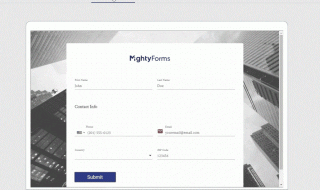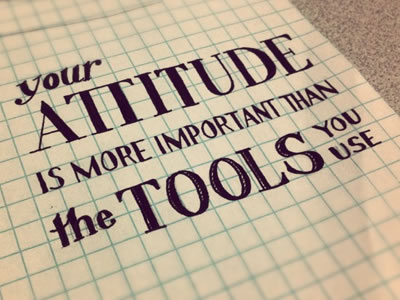
You announce your plans to become a web designer, expecting a barrage of congratulatory back patting, bear hugging, and reassurances that you are going to be the best in the business. Instead, your announcement sparks a cartoon-like silence—with cricket noises and all—followed by spirit-dampening advice like “make sure you have something to fall back on.” Your greatly anticipated celebratory moment plummets to the ground with an audible “thud.”

The truth is that a career in web design is riskier than say a job as a mail sorter. In fact, the odds of being successful are almost as unlikely as making a living as an actor or, heaven forbid, a mime. But that doesn’t mean that you can’t be part of the well-fed, able-to-meet-their-financial-obligations minority. If you step on those rose-colored glasses and enter this business knowing where “those who have gone before you” failed, you just might make it.
Here are a few of the mistakes that web design casualties commonly make and some tips on how to avoid them.
Monet Wasn’t A Web Designer

7 Skills you’ll Need to Run a Successful Web Design Business
You may be able to “guard, turn, parry, dodge, spin, and thrust” a paintbrush head-to-head with the masters, but that does not equate to being a great web designer. Artistic ability is, obviously, a requirement, but you must also possess strong problem solving, interpersonal, and computer skills. You need to understand how to attract and maintain an online audience using the right colors, fonts, white space, images, bullets and more. And, you must also have a knack for deciphering what your client is looking for—even when they aren’t quite sure themselves.
Before committing to a web design career, take an honest inventory of your skill set and determine if you are equipped for the job. If you find you are lacking in certain areas, take steps to acquire the requisite knowledge.
Web Pages Are Not Made of Paper
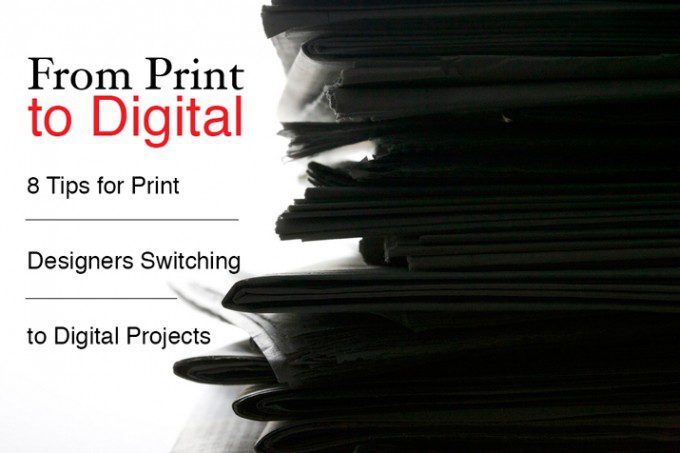
8 Tips for Print Designers Switching to Web & Digital Design
If you have a plethora of print design experience, forget everything you know. Creating a web page is a completely different beast. No longer do you have to worry about the confines of space and trying to say as much as possible in as few words as you can. The internet provides you with infinite room. In fact, white space and massive images are your new best friends.
Your enemy is time. You must keep the audience riveted and dissuade them from pressing the dreaded “back” button, in search of another site. The more time they spend on your client’s page, the more likely they are to take action. And that really is the whole point, isn’t it?
Before diving headfirst into a web design career, make sure that you are able to make the transition from paper to cyberspace. WordPress is very different from the press.
You Are Not Your Own Boss
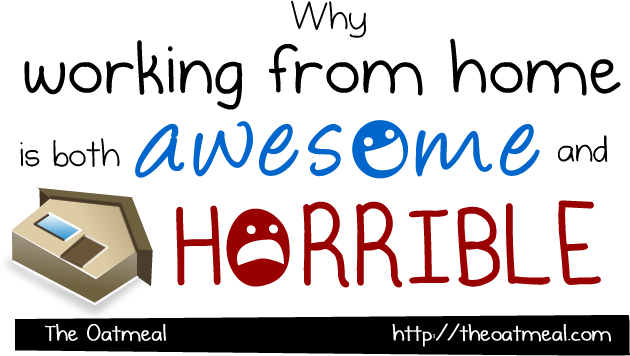
Why working at home is both awesome and horrible – The Oatmeal
If you think that becoming an independent web designer is going to be easier than working for someone else, think again. Self-employment means adding a whopping pile of extra duties to your workload. You must find and schmooze your own clientele, you need to look after the “business” side of things like accounting and marketing, and you can kiss your 9 to 5, seven-day work week goodbye.
Plus, contrary to what you may believe—you still don’t work for yourself. Your customer is the boss. Your work must meet their needs, specifications, and deadlines. And they don’t even pay for your benefits.
If you embark on a web design career with these cold, hard facts in mind, you will be much better prepared. And you can acquire some bookkeeping and advertising skills before you jump in blind.
Proof is in the Portfolio
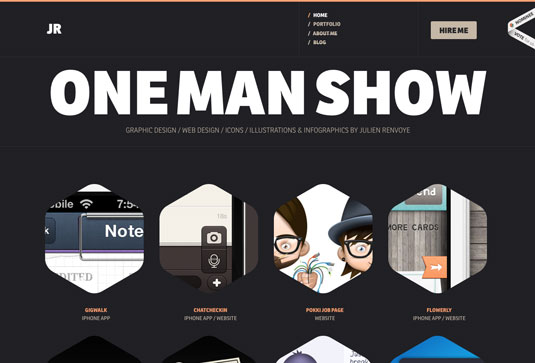
30 brilliant design portfolios to inspire you
When it comes to the web development business, your word means squat. No one cares about your letters of reference or your carefully composed resume. In this case, pictures really do say a thousand words—and you need to let your portfolio do your talking.
If you can’t provide a potential client with at least five excellent examples of your work, you are going to be one hungry web developer. You will likely need to work for someone else until your portfolio is ready to show the public eye.
If you conduct thorough research and still believe you have what it takes to become a successful web designer, stop seeking the approval of others. Endure your loved ones’ looks of dismay and words of advice. And take comfort in the fact that living well really is the best revenge. And twenty-five percent of all web designers do exactly that.
What other fatal mistakes do web designers make? How can they be avoided?


